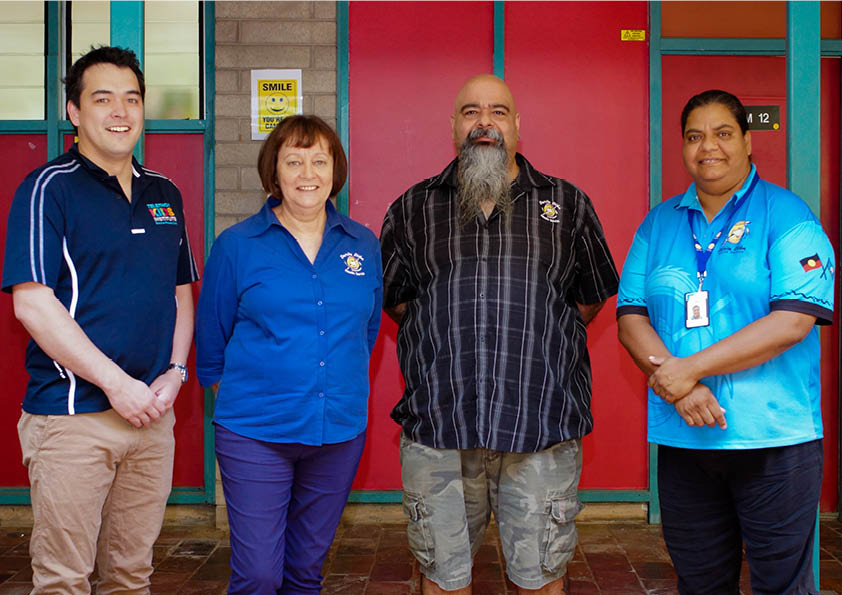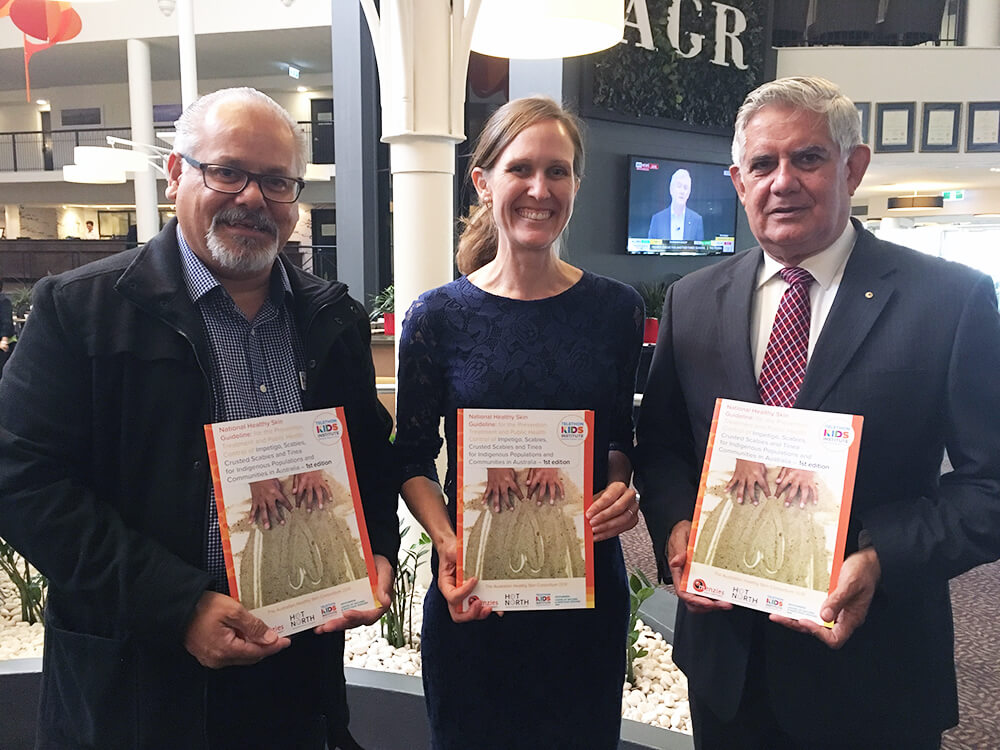Search
Showing results for "Au"
Research
Language DevelopmentLanguage is one of the most remarkable developmental accomplishments of early childhood. Language connects us with others and is an essential tool for literacy, education, employment and lifelong learning.

People within the Life Course Centre.
Research
Precision pathways for young children at risk of Neurodevelopmental Disorders: Early identification and adaptive intervention starting from the prenatal periodAmy Andrew Carol Deborah Gail Helen Jenny Kandice Martyn Videos Finlay-Jones Whitehouse Watch and listen to Andrew Bower Strickland Alvares Leonard

News & Events
New RHD research collaboration with Danila Dilba Health ServiceThe Kids Research Institute Australia and Menzies School of Health Research have joined forces with Danila Dilba Health Service to look at improving treatment for RHD.
Research
An immunometabolomic approach to unmask developmental regulation of innate immunity and asthma riskDeborah James Pat Strickland Read Holt PhD PhD, DSc, FRCPath, FRCPI, FAA Head, Pregnancy and Early Life Immunology Honorary Research Associate
Research
Research Note: Adaptive trialsThis Research Note has explored the strengths, risks and potential complexity of adaptive trials
Research
The relationship between physical activity, self-regulation and cognitive school readiness in preschool childrenLimited research exists on the pathways through which physical activity influences cognitive development in the early years. This study examined the direct and indirect relationships between physical activity, self-regulation, and cognitive school readiness in preschool children.
Research
Implementation of a strategy to facilitate effective medical follow-up for Australian First Nations children hospitalised with lower respiratory tract infections: study protocolFirst Nations children hospitalised with acute lower respiratory infections (ALRIs) are at increased risk of future bronchiectasis (up to 15-19%) within 24-months post-hospitalisation. An identified predictive factor is persistent wet cough a month after hospitalisation and this is likely related to protracted bacterial bronchitis which can progress to bronchiectasis, if untreated.
Research
Primary Nasal Epithelial Cells as a Surrogate Cell Culture Model for Type-II Alveolar Cells to Study ABCA-3 DeficiencyATP Binding Cassette Subfamily A Member 3 (ABCA-3) is a lipid transporter protein highly expressed in type-II alveolar (AT-II) cells. Mutations in ABCA3 can result in severe respiratory disease in infants and children. To study ABCA-3 deficiency in vitro, primary AT-II cells would be the cell culture of choice although sample accessibility is limited. Our aim was to investigate the suitability of primary nasal epithelial cells, as a surrogate culture model for AT-II cells, to study ABCA-3 deficiency.

News & Events
National guideline to tackle record rates of skin infectionResearchers have developed the first National Healthy Skin Guideline to address record rates of skin infections in Australia’s Indigenous communities.
